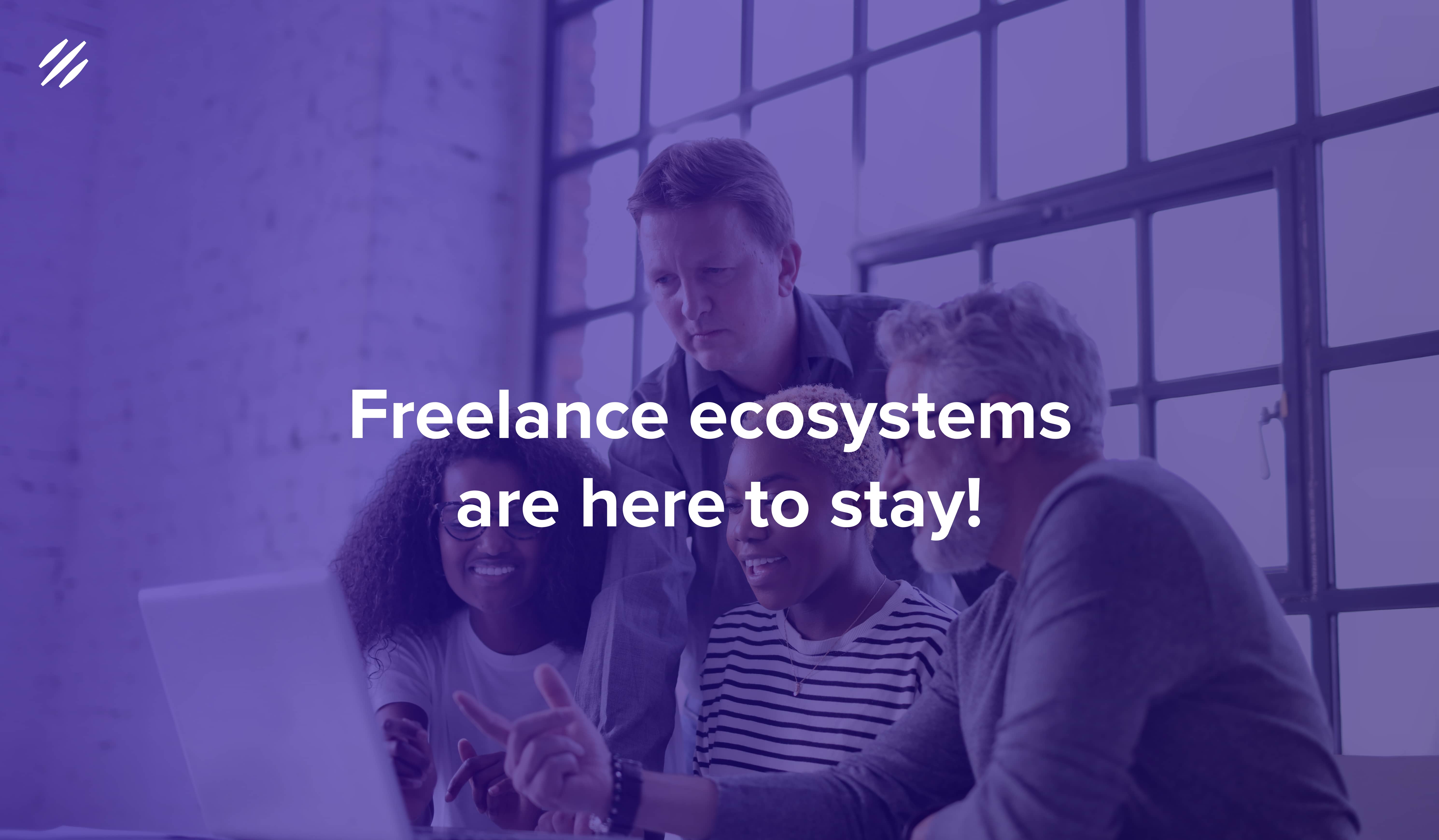How Freelance Ecosystems disrupt Freelance Marketplaces in 2023
Freelance ecosystems are the newest addition to the freelance market —but what are they, how exactly are they different from traditional marketplaces, and what are their benefits? This blog post explores the concept of freelance ecosystems and their potential to revolutionise the freelance market space in 2023 and beyond.

Introduction
The rise of the gig economy has paved the way for new and innovative ways of working, and freelance ecosystems are the latest addition to this trend. Unlike traditional freelance marketplaces that simply connect clients with freelancers, freelance ecosystems offer a more holistic approach. They provide a range of services such as project management tools, invoicing and payment processing, legal and tax advice, and even in some cases health insurance options.
These ecosystems aim to create a more supportive and sustainable working environment for freelancers by offering them the resources and tools they need to succeed. They also aim to provide clients with a higher quality of service by vetting freelancers and offering more personalised matchmaking, business support and expert consulting.
Looking ahead, freelance ecosystems are setting out to disrupt the traditional freelance marketplace model and revolutionise the way we work.

What is a freelance ecosystem?
It's crucial to understand the difference between traditional freelance marketplaces and freelance ecosystems. While both provide a platform for connecting clients with freelancers, there are significant differences in how they operate and the range of services they offer.
Freelance marketplaces, such as Upwork and Freelancer.com, typically offer a simple platform for clients to post jobs and for freelancers to bid on those jobs. The marketplace takes a commission on the transaction, and the client and freelancer communicate directly to complete the work. Freelancers on these platforms are often competing on price and may be willing to work for less to secure a job, which can lead to a race to the bottom in terms of pay.
In contrast, freelance ecosystems offer a more comprehensive set of services to support freelancers and clients throughout the entire process. These services may include project management, invoicing and payment processing, legal and tax advice, and personalised support. Freelancers and working professionals within these ecosystems may also have access to a more stable stream of work through long-term contracts and ongoing projects, which can provide more stability and consistency than traditional freelance marketplaces.
In addition, freelance ecosystems often have a more rigorous vetting process for freelancers, only including top talent in their network. This results in a higher level of quality and expertise, which can lead to better outcomes for clients and more fulfilling work for freelancers and professionals.
Overall, freelance ecosystems offer a more holistic approach, with the goal of providing a more supportive and sustainable working environment for both freelancers, as well as business clients. While freelance marketplaces may be more focused on transactional work and lower costs, freelance ecosystems are geared towards creating long-term relationships and higher-quality work.

The benefits of a freelance ecosystem
One of the key benefits of freelance ecosystems is the ability to provide freelancers with more stable and consistent work. Traditional freelance marketplaces are often characterised by a "feast or famine" cycle, where freelancers experience periods of high demand followed by periods of little to no work. Freelance ecosystems aim to address this issue by offering a more reliable stream of work through long-term contracts, retainer agreements, and ongoing projects with customers who often pay a fee to be part of the ecosystem.
In addition to providing more stable work, freelance ecosystems also aim to offer better pay and benefits to freelancers. They achieve this through a variety of means, such as negotiating bulk rates for services, offering discounts on tools and resources, and getting rid of the bill-per-hour model.
However, freelance ecosystems do face challenges. One of the main issues remains building a large and diverse enough community of freelancers and clients to make the ecosystem viable. Another challenge is maintaining a high level of quality control, as the ecosystem is only as good as the freelancers it attracts.
Despite these challenges, the potential benefits of freelance ecosystems are compelling. By providing a more supportive and sustainable working environment, freelance ecosystems have the potential to reshape the future of the freelance market and offer a more viable and fulfilling career path for freelancers while offering higher quality output to businesses looking to outsource work.
Conclusion
In conclusion, freelance ecosystems are setting out to disrupt the status quo of the freelance market. Despite facing challenges, these ecosystems already provide freelancers with more stable working conditions and better pay and benefits, while outputting higher-quality results for businesses.
Blackbear.global is one of the ecosystems spearheading this shift. Their network consists of over 9000 skilled professionals across all industries and seniority levels. The blackbear ecosystem connects organisations of any size to freelancers from their network to get work done — any type of work, from ad-hoc assignments, to long-term projects and entire business processes. Through close collaboration with both, freelancers and businesses, from beginning to end and an outcome-based payment model, blackbear manages to generate more value for money for all parties involved.
